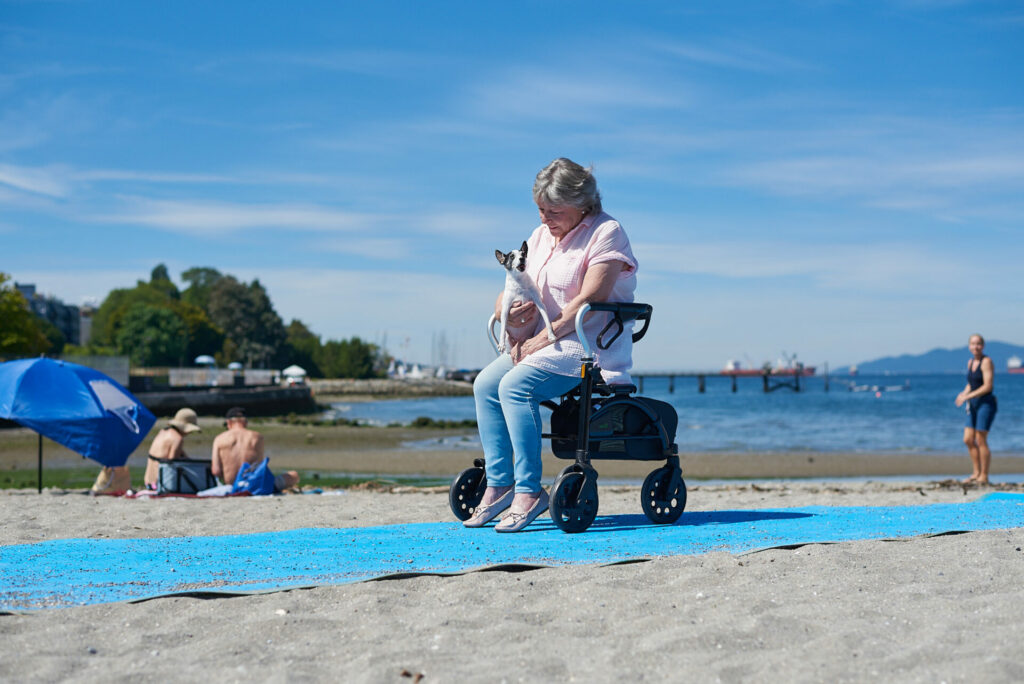6 Ways a Walker Can Help You Stay Independent
Introduction
Independence is a precious aspect of life, often taken for granted by many until circumstances challenge it. For individuals facing mobility issues, independence can feel like a distant dream. However, with the right tools and mindset, maintaining independence is not only possible but achievable. One such tool that significantly aids in preserving independence is a walker. In this article, we’ll explore six ways a walker can empower individuals to stay independent, reclaiming mobility and freedom.
Enhanced Mobility
The primary function of a walker is to provide stability and support while walking. For individuals with balance issues or weakness in their lower body, a walker is a reliable companion, allowing them to move around safely. By facilitating movement, a walker enables individuals to carry out daily tasks independently, such as shopping for groceries, visiting friends, or simply enjoying a leisurely stroll.
Fall Prevention
Falls pose a significant risk, particularly for older adults or those with mobility impairments. The consequences of a fall can be severe, leading to injuries that compromise independence and quality of life. A walker serves as a preventive measure against falls by providing steady support and reducing the risk of tripping or losing balance. With the added stability of a walker, individuals can navigate various environments with confidence, significantly lowering the likelihood of falls.

Increased Confidence
Mobility challenges can erode confidence and self-esteem, leading to feelings of dependency and limitation. However, with a walker, individuals regain a sense of control over their mobility, boosting their confidence levels. The reassurance of having a stable support system allows individuals to venture out, engage in social activities, and participate in community events without the fear of stumbling or falling. As confidence grows, so does independence, creating a positive cycle of empowerment.
Independence at Home
Maintaining independence within the comfort of one’s home is essential for overall well-being. A walker enables individuals to navigate their living spaces safely, whether it’s moving from room to room, accessing cabinets and shelves, or maneuvering around furniture. With a walker as a reliable aid, individuals can carry out household chores and daily activities independently, preserving their autonomy and sense of self-sufficiency. For indoor use, it is particularly important to have a lightweight walker that can be picked up and maneuvered in tight spaces easily.
Independence & Access to Outdoor Activities
Outdoor activities contribute to physical health, mental well-being, and social connectedness. However, mobility limitations can restrict individuals from enjoying the outdoors to the fullest. A walker opens up opportunities for outdoor excursions, allowing individuals to explore parks, gardens, and other recreational areas with ease. Whether it’s enjoying a picnic with family, taking a nature walk, or attending community events, a walker facilitates active participation in outdoor activities, enriching life experiences and fostering a sense of freedom.
Independence extends beyond mobility to encompass various aspects of daily living, including personal care and hygiene. A walker promotes functional independence by assisting individuals in tasks such as bathing, dressing, and grooming. With the support of a walker, individuals can maintain their personal routines and hygiene practices without relying on constant assistance, preserving their dignity and autonomy.
Empowerment through Customization
One of the greatest strengths of a walker lies in its adaptability to individual needs and preferences. Walkers come in various styles, sizes, and features, allowing users to customize their mobility aid according to their specific requirements. Whether it’s selecting a lightweight design for easy maneuverability, incorporating accessories like baskets or trays for carrying personal items or choosing specialized features such as brakes or swivel wheels for added safety and convenience, customization empowers individuals to tailor their walker to suit their lifestyle and mobility goals.
Conclusion
Independence is a fundamental aspect of human dignity and well-being, and mobility plays a crucial role in maintaining that independence. For individuals facing mobility challenges, a walker serves as more than just a mobility aid—it’s a symbol of empowerment, enabling them to reclaim freedom, confidence, and autonomy in their daily lives. By embracing the support and versatility of a walker, individuals can navigate the world with renewed independence, seizing opportunities, pursuing passions, and embracing life to the fullest.


